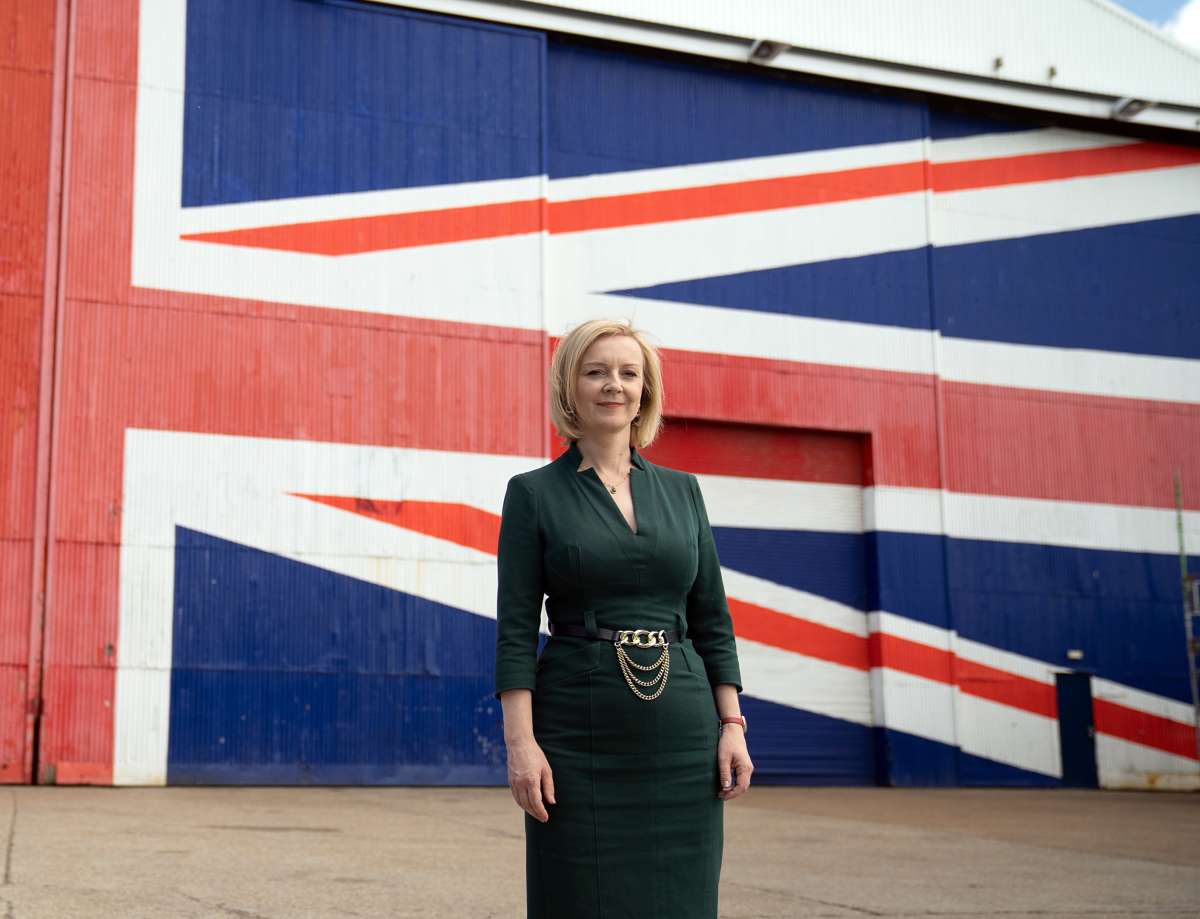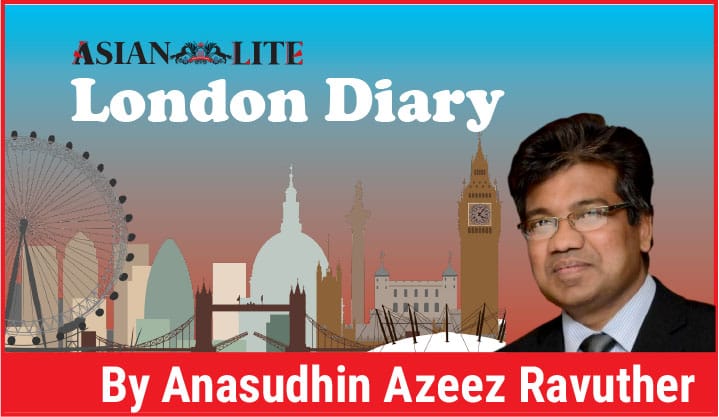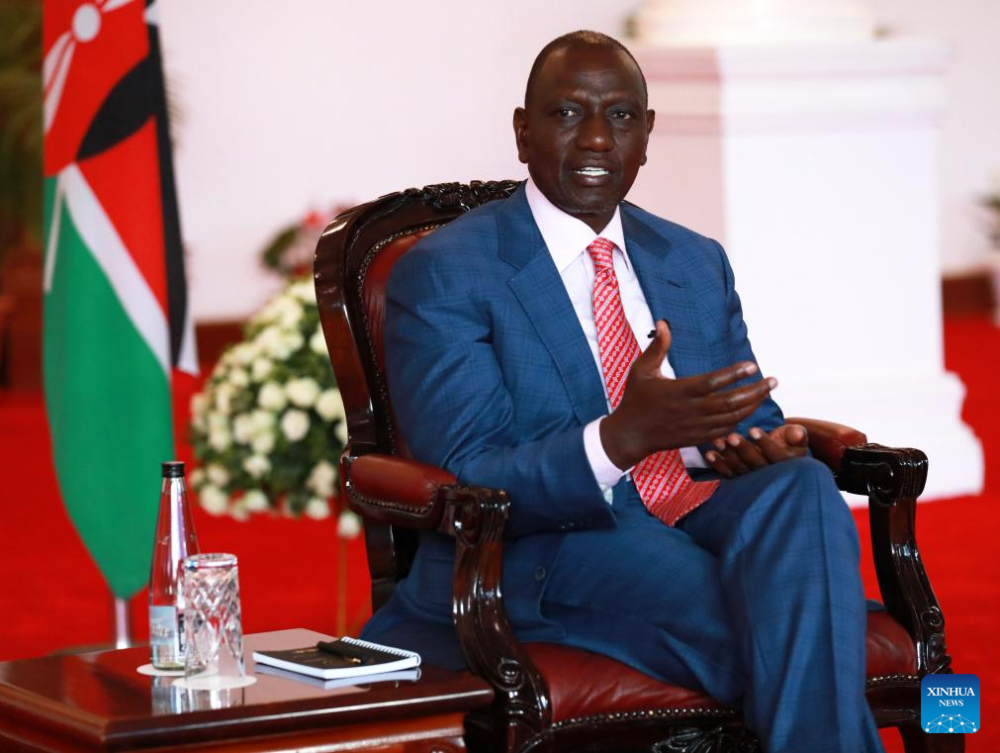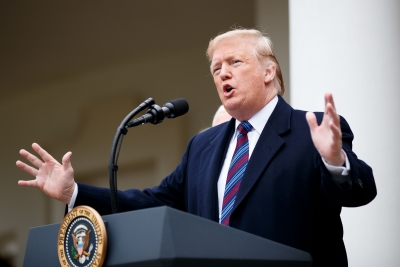Her brief time in power – 49 days – made her the shortest-serving prime minister in UK history…reports Asian Lite News
Liz Truss has said she was never given a “realistic chance” to implement her radical tax-cutting agenda by her party.
In a 4,000-word essay in the Sunday Telegraph, Truss stood by her plans to boost economic growth, arguing they were brought down by “the left-wing economic establishment”.
They are the first public comments the ex-PM has made on her resignation. But she said she was not “blameless” for the unravelling of the mini-budget.
Truss was forced to quit after she and her chancellor Kwasi Kwarteng’s £45bn package of unfunded tax cuts panicked the markets and tanked the pound to a record low.
Her brief time in power – 49 days – made her the shortest-serving prime minister in UK history.
Truss said that while her experience last autumn was “bruising for me personally”, she believed that over the medium term her policies would have increased growth and therefore brought down debt.
The ex-PM said she had not been warned of the risks to the bond markets from liability-driven investments (LDIs) – bought up by pension funds – due to the mini-budget, which forced the Bank of England to step in to prevent them collapsing as the cost of government borrowing soared.
The government did not tell the Bank of England about its tax cut plans before the mini-budget, one of its deputy governors said at the time.
But the ex-PM argued that the government was made a “scapegoat” for developments that had been brewing for some time.
She wrote: “While the government was focused on investigating what had happened and taking action to remedy the situation, political and media commentators cast an immediate verdict blaming the mini-budget.
“Frankly, we were also pushing water uphill. Large parts of the media and the wider public sphere had become unfamiliar with key arguments about tax and economic policy and over time sentiment had shifted leftwards. Regrettably, the government became a useful scapegoat for problems that had been brewing over a number of months.”
At some length, she attempts to argue her case and answer for her actions. There is reflection and regret but not the apology which many might expect.
What burns through this 4000 word essay is a sense from Liz Truss that almost everything was against her as she makes a case for what might have been.
The system, officials, Conservative MPs all played a part, she argues, in stopping her from achieving her aim of economic growth through tax cuts and de-regulation.
There are breath taking reminders of how high the stakes were as her policies sent shockwaves through the economy – Kwasi Kwarteng had to go to avoid “a serious meltdown for the UK” and “the starkest of warnings” came from officials that the country may have to default on its debt.
Despite her downfall, Liz Truss argues many still share her enthusiasm for what she was trying to achieve.
And as Conservatives engage in open debate about whether her successor Rishi Sunak should move to cut taxes more quickly, she’s promised more to come.
She also said she had not appreciated the strength of the resistance she would face to her plans – including plans to abolish the 45p top rate of income tax.
“I assumed upon entering Downing Street that my mandate would be respected and accepted. How wrong I was. While I anticipated resistance to my programme from the system, I underestimated the extent of it,” she writes.
Kwarteng dropped the 45p income tax proposals 10 days after they were announced, telling the BBC it was “a massive distraction on what was a strong package”.
Less than a fortnight later, Truss sacked Kwarteng, something she said she was “deeply disturbed by”.
“Kwasi Kwarteng had put together a brave package that was genuinely transformative – he is an original thinker and a great advocate for Conservative ideas. But at this point, it was clear that the policy agenda could not survive and my priority had to be avoiding a serious meltdown for the UK,” she wrote.














